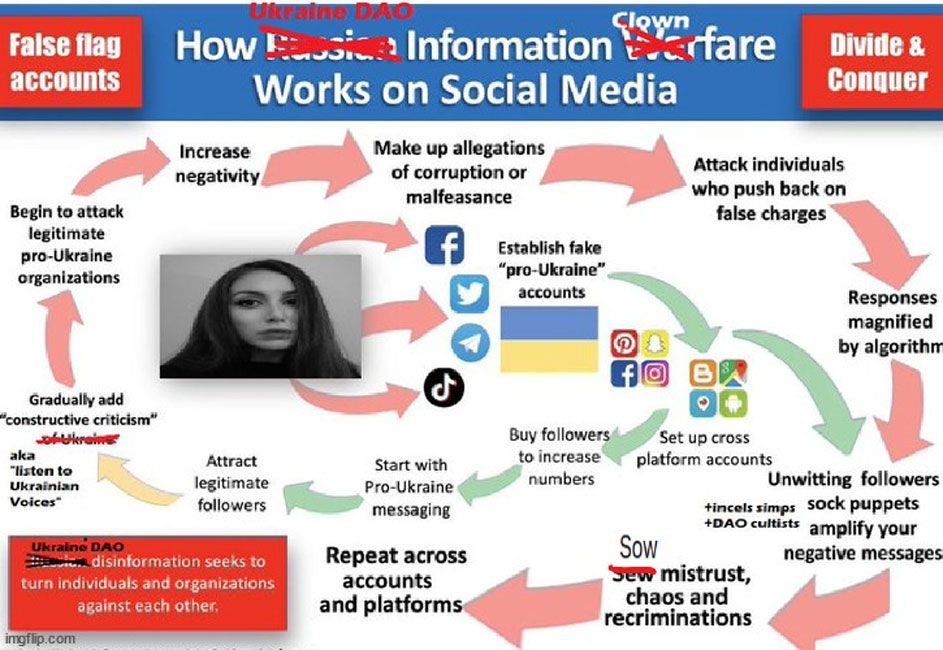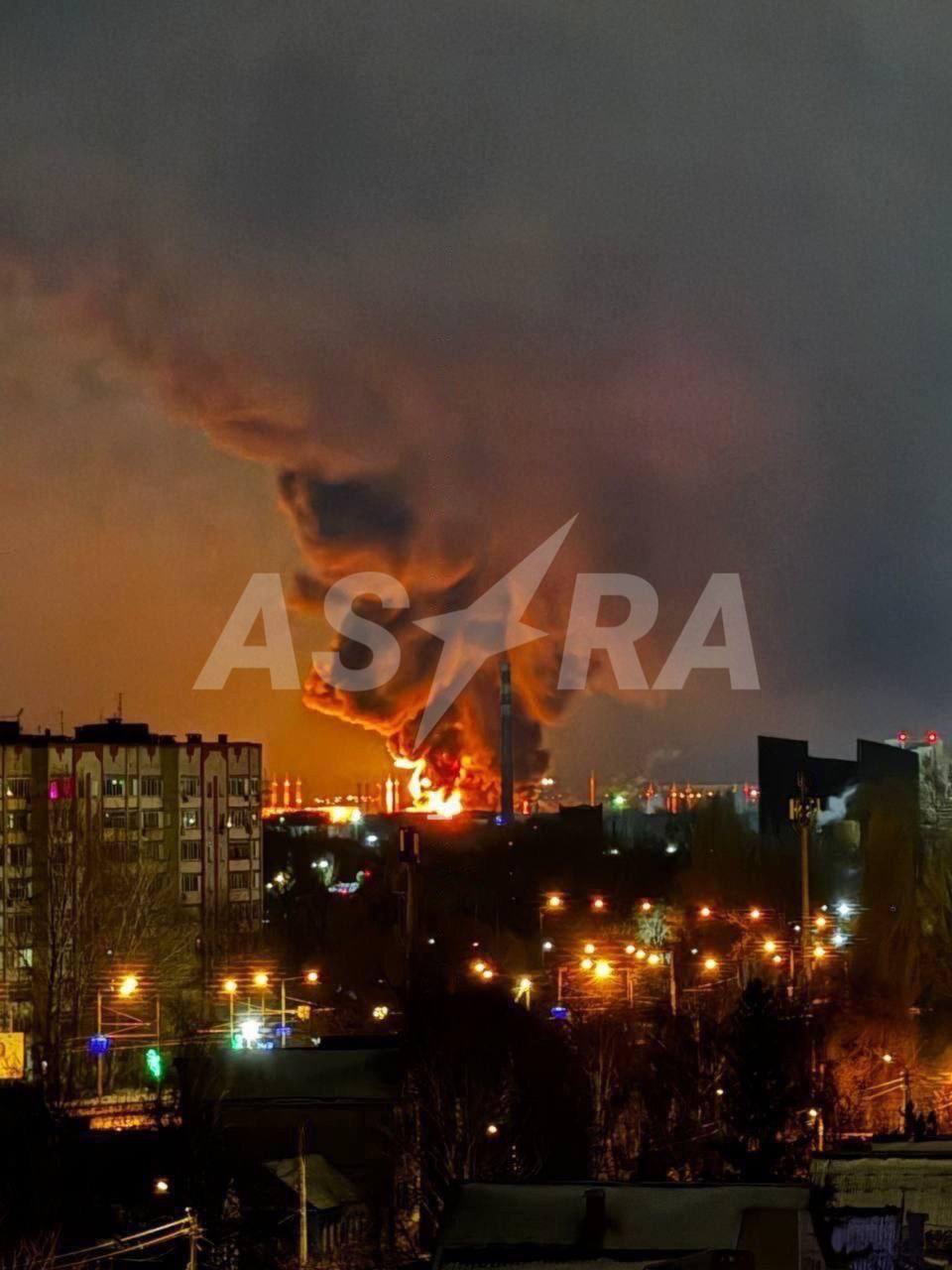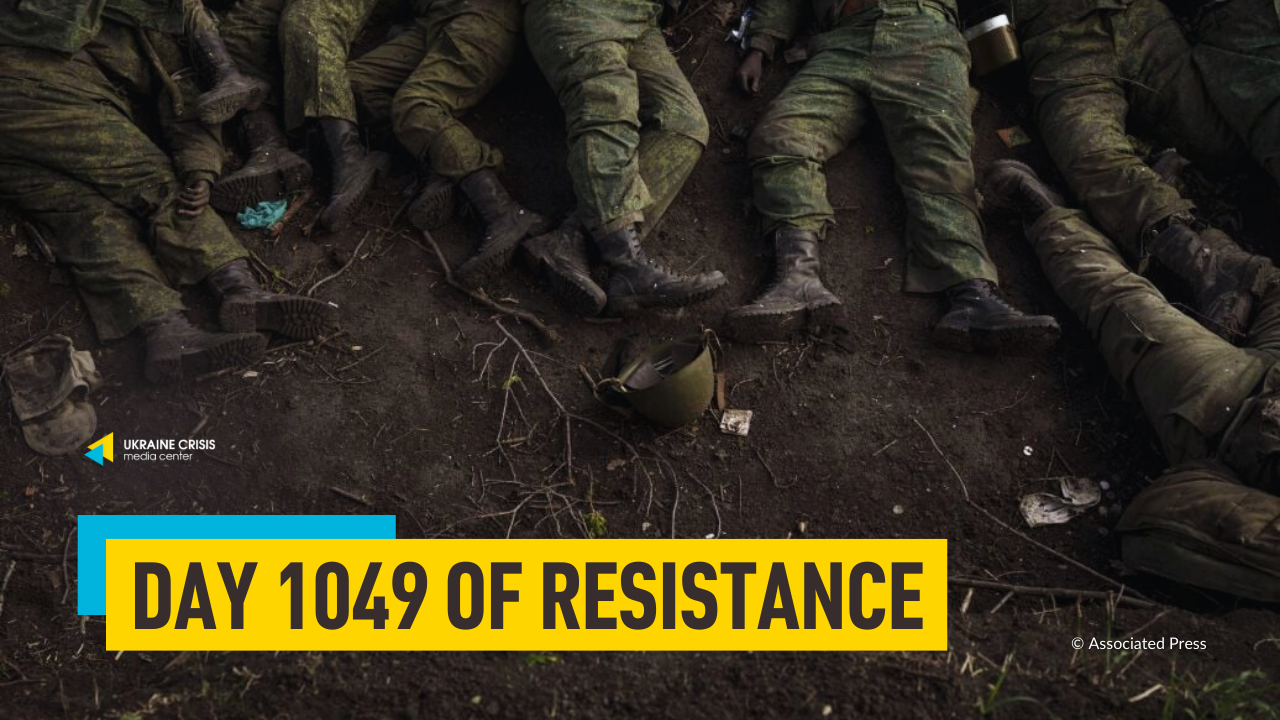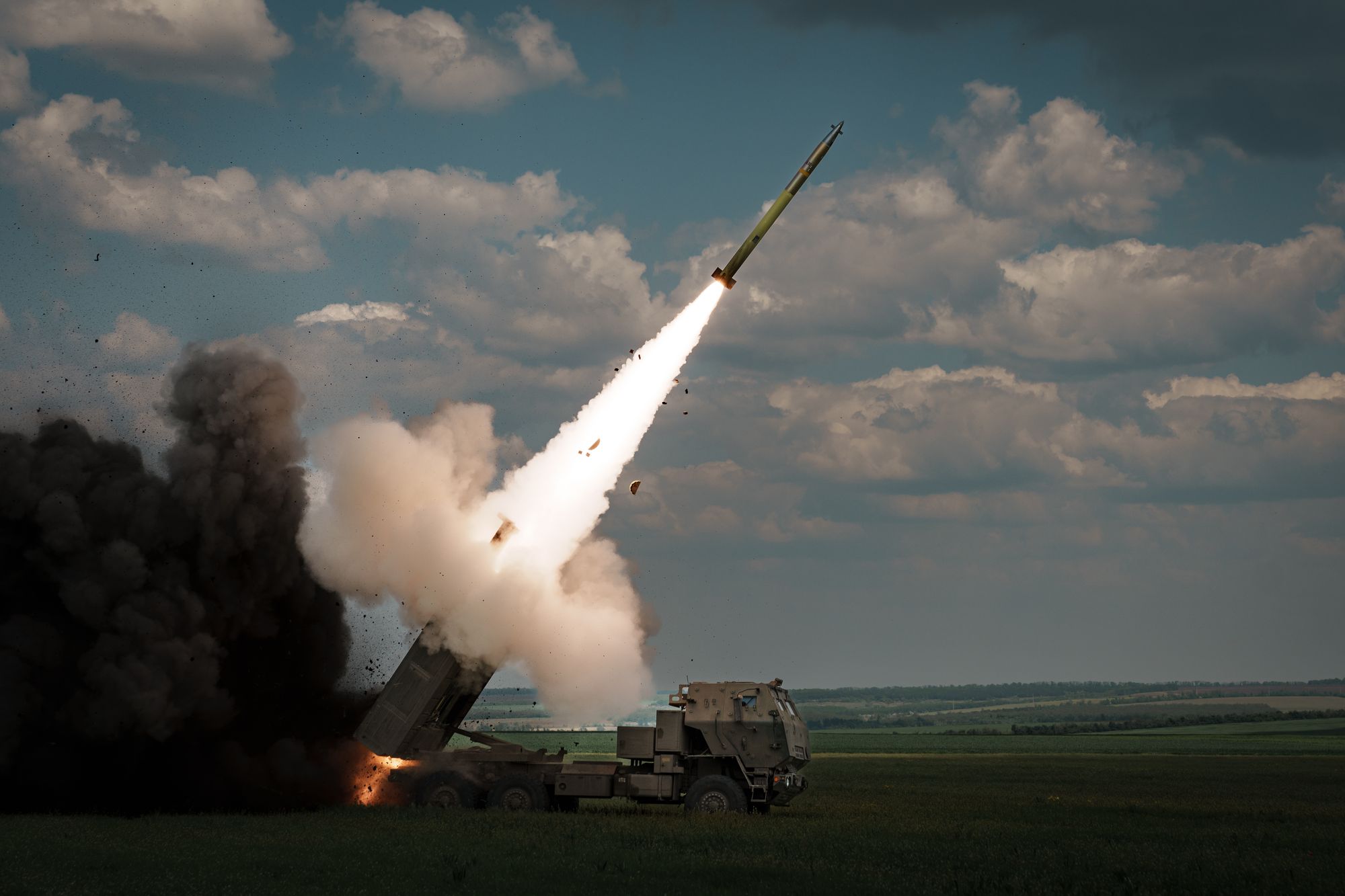The Birth of UkraineDAO
Launched in early 2022, UkraineDAO was a collaboration between Nadya Tolokonnikova of Pussy Riot, crypto-activists, and Ukrainian organizers like Alona Shevchenko. The DAO gained widespread acclaim for its auction of an NFT featuring the Ukrainian flag, which raised approximately $6.8 million.
Funds were purportedly directed toward Ukrainian civilians and defense efforts, while donors received symbolic $LOVE tokens to signify their contributions. These tokens, while primarily symbolic, represent participation and support rather than holding any intrinsic financial value.
For a time, UkraineDAO epitomized the potential of blockchain technology to revolutionize fundraising in emergencies. As reported by the Kyiv Post, its campaign attracted global attention, showcasing how decentralized platforms could mobilize resources rapidly and effectively.
Financial Transparency Issues
However, UkraineDAO’s success was soon marred by allegations of financial impropriety. Independent investigations, including financial tracing through blockchain analytics tools, revealed payments totaling over $67,500 to Alona Shevchenko, one of the initiative’s key figures. While UkraineDAO leadership claimed these funds covered operational costs, critics argue the lack of prior disclosure undermines donor trust.
Adding to the controversy, Dima Buterin, the father of Ethereum co-founder Vitalik Buterin, has voiced opposition to sanctions, according to CoinDesk. Vitalik Buterin himself has reportedly donated to the legal defense of a Tornado Cash developer convicted of money laundering in the Netherlands, according to Crypto Times.
Critics argue that these positions align with efforts to weaken sanctions enforcement and highlight broader concerns about how decentralization could facilitate illicit activities.
While UkraineDAO leadership claimed these funds covered operational costs, critics argue the lack of prior disclosure undermines donor trust.
Additionally, UkraineDAO’s claims of government endorsement came under scrutiny. The Kyiv Post reported that Ukraine’s Deputy Minister of Digital Transformation, Alex Bornyakov, publicly denied any formal relationship with the organization, further undermining its credibility.
For a detailed breakdown of the financial concerns, refer to Mr. Pickle’s investigation on Substack.
More troubling are the allegations linking UkraineDAO to far-right figures and ideologies. Investigative reports have detailed connections between the DAO and Olena Semenyaka, referred to as the "First Lady of Ukrainian Nationalism." Semenyaka has been an international figurehead for far-right ideologies and has actively worked to foster transnational networks among far-right movements.
Notably, she played a key role in hosting international figures such as American white nationalist Greg Johnson at events like the "Awakening" conference in Lithuania, according to HOPE Not Hate. Such activities have further raised red flags for donors and observers alike, given the ideological controversies tied to UkraineDAO.
The piece Olena Semenyaka: The Russian Trojan Horse? by Mr. Pickle explores her controversial role and how her involvement has raised questions about the ideological leanings of UkraineDAO’s leadership. While the organization has not explicitly endorsed extremism, its associations—whether intentional or incidental—highlight the specific risks of operating in a loosely regulated, decentralized space, such as lack of oversight, susceptibility to exploitation by adversarial actors, and potential misuse for illicit activities.
The indictment of Tornado Cash’s founders for money laundering and sanctions violations underscores the dangers of inadequate compliance mechanisms within decentralized systems.
These allegations are further detailed in Mr. Pickle’s UkraineDAO Investigation by Mr. Pickle and Exposed Walter Lekh Collaborations.
Broader Implications for DAOs and Donors
Dima Buterin, the father of Ethereum co-founder Vitalik Buterin and part of the Ukraine DAO community, has voiced opposition to sanctions against russian people, according to CoinDesk. His views reflect broader tensions within the cryptocurrency community about the balance between decentralization, accountability, and legal enforcement.
The case of Tornado Cash illustrates the vulnerabilities of decentralized platforms to being exploited for illegal activities. Roman Storm and Roman Semenov, the founders of Tornado Cash, were charged with conspiracy to commit money laundering, sanctions violations, and operating an unlicensed money-transmitting business.
This case illustrates broader DAO-related regulatory risks, emphasizing the legal vulnerabilities inherent in decentralized financial platforms. The Dutch Court Sentences Tornado Cash Developer highlights evolving legal consequences for non-compliance.
Decentralized Autonomous Organizations (DAOs) often fail or become corrupted due to several fundamental weaknesses. Here are some key reasons, based on broader critiques of DAO governance:
- Governance Issues: While DAOs are meant to be decentralized, governance mechanisms often become centralized over time. A small group of stakeholders with large holdings or voting power can dominate decision-making, leading to a concentration of influence that undermines the democratic nature of DAOs.
- Token-based Voting: In many DAOs, voting power is tied to the number of tokens a participant holds, which can lead to plutocracy. Wealthier participants or entities can accumulate tokens to disproportionately influence governance, leading to decisions that benefit a few rather than the broader community.
- Lack of Accountability: Since DAOs operate without traditional oversight or leadership, accountability mechanisms can be weak. This can make it difficult to address unethical behavior or fraud, as there is no clear authority to enforce rules or resolve conflicts.
- Complexity of Smart Contracts: DAOs rely heavily on smart contracts to enforce rules and execute decisions. However, smart contracts are prone to bugs or unforeseen exploits. Even small coding errors can lead to significant financial losses or security breaches.
- Coordination Problems: Achieving consensus in a decentralized environment is challenging. Participants may have conflicting incentives, and it can be difficult to coordinate collective action or ensure that everyone is acting in the best interest of the DAO.
- Regulatory Uncertainty: DAOs often operate in a legal gray area, which can expose them to regulatory risks or legal actions. Uncertainty around how DAOs are treated under existing laws can also deter participation or investment, contributing to their failure.
- Security Vulnerabilities: DAOs, due to their reliance on blockchain technology, can be vulnerable to hacking or other forms of cyberattacks. The infamous DAO hack in 2016, where $60 million worth of Ether was stolen, highlights how smart contract vulnerabilities can lead to catastrophic failure.
- Economic Incentive Misalignment: DAOs depend on participants acting in the best interest of the collective, but incentive structures are often misaligned. Participants might prioritize short-term gains over long-term stability, leading to poor decision-making or selfish behavior that can destabilize the organization.
The controversies surrounding UkraineDAO underscore the risks of philanthropy in the digital age. While decentralized platforms like DAOs can mobilize resources at unprecedented speed, their lack of traditional oversight opens the door to misuse and ethical lapses. Blockchain technology’s inherent pseudonymity, often celebrated for privacy, can also obscure accountability.
The case of UkraineDAO reflects broader dilemmas in DAO governance: How can decentralized entities ensure both agility and accountability in crisis scenarios? Advocates argue that rigorous smart contract implementation and public financial dashboards could mitigate risks. However, these measures often remain aspirational rather than operational.
For donors, these revelations highlight the importance of due diligence. Understanding the individuals and structures behind fundraising efforts is critical to ensuring contributions serve their intended purpose. As discussed in Mr. Pickle’s Rise and Fall of a Crypto Charlatan, blind trust in innovative platforms can lead to unintended consequences.
Steps Toward Accountability
Acknowledging the risks of infiltration by adversarial entities, as highlighted by analysts, DAOs like UkraineDAO must implement robust security measures, such as two-factor authentication, regular audits, and smart contract vulnerability assessments, to enhance their integrity and protect against external threats. This includes thorough vetting of members, continuous monitoring for signs of infiltration, and establishing governance protocols capable of withstanding external manipulation. Strengthening these measures can protect the integrity and mission of decentralized organizations.
To regain trust, UkraineDAO and similar organizations must prioritize transparency, ethical practices, and rigorous oversight. Experts suggest that DAOs engaging in humanitarian work could establish partnerships with trusted, third-party auditing organizations, such as ChainSecurity or OpenZeppelin, which have experience in auditing blockchain-based systems. These external reviews could validate fund allocation and ensure compliance with international ethical standards. Furthermore, DAOs might adopt multi-signature wallets requiring approval from independent observers before disbursing significant sums.
Conclusion: Balancing Innovation and Accountability
UkraineDAO began as a beacon of innovation, demonstrating how technology could address urgent global crises. Yet, its controversies reveal the challenges of operating in a decentralized, lightly regulated space. To maintain trust, organizations like UkraineDAO must adopt transparent practices and implement robust accountability measures.
For donors and supporters of Ukraine, this story serves as a cautionary tale. As technology reshapes the philanthropic landscape, accountability must remain at the forefront to ensure that good intentions translate into meaningful impact.
Links to Articles
- ‘Waking Up’ to Hate: European and American Far Right Convene in Lithuania
- Kyiv Post on UkraineDAO’s Financial Transparency
- UkraineDAO's Role in Crisis Fundraising
- UkraineDAO’s Government Relations
- The Rise and Fall of a Crypto Charlatan
- UkraineDAO Investigation by Mr. Pickle
- Exposed: UkraineDAO Cult Tactics
- Olena Semenyaka: The Russian Trojan Horse?
- Walter Lekh Collaborations
- Dutch Court Sentences Tornado Cash Developer
- Vitalik Buterin Donates to Tornado Cash Legal Defense
- Lessons from the Early Years of Impact DAOs















